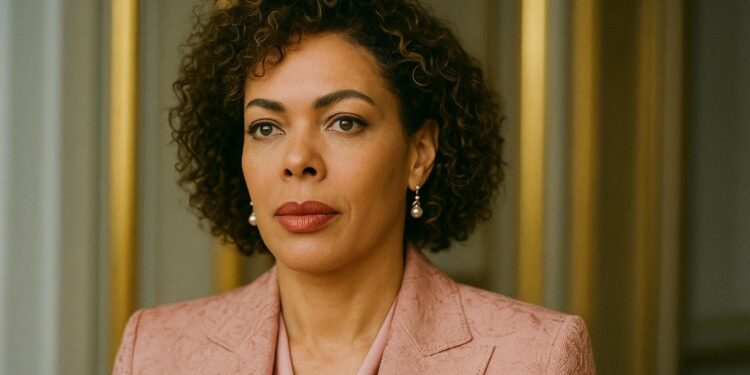A Quietly Accelerated Courtship
Diplomatic calendars in Washington are seldom short of African delegations, yet the three-day presence of Dr. Françoise Joly, Personal Representative of President Denis Sassou Nguesso, stood out for its discreet intensity. According to a senior State Department official familiar with the scheduling (US Department of State media note, 2024), the Congolese envoy secured meetings not only with Assistant Secretary for African Affairs Corina Sanders but also with mid-level National Security Council staff responsible for Gulf of Guinea stability. The choreography suggested a deliberate acceleration of engagement, breaking a period of mutual reticence that had followed the pandemic and regional security shocks.
An Agenda Beyond Optics
Both capitals framed the encounter as ‘particularly constructive’, a diplomatic euphemism that often masks modest outcomes. In this case, participants say the adjective was warranted. Economic diversification, energy transition finance and counter-wildlife trafficking were discussed with an uncommon level of granularity, according to a Congolese communiqué issued after the talks (Congo Ministry of Foreign Affairs communiqué, 2024). Dr. Joly, whose academic background in development economics tempers her legal training, argued for ‘project-based pragmatism’ rather than overarching memoranda. American counterparts, mindful of Congressional scrutiny on China’s footprint in Central Africa, signalled readiness to examine public-private partnerships in Brazzaville’s port rehabilitation and solar corridor proposals.
Travel Ban Dialogue Signals Trust
Perhaps the most politically sensitive topic was the targeted travel restrictions placed in June 2025. The matter had festered as a symbol of mistrust. Sources on both sides confirm that Dr. Joly tabled a legal brief demonstrating enhanced compliance with anti-corruption benchmarks and judicial cooperation. While no formal repeal was announced, negotiators agreed to a ‘technical review phase’, often the precursor to rescission in similar cases involving Liberia and Sierra Leone. A U.S. diplomat characterized the exchange as ‘evidence-driven rather than rhetorical’, praising Brazzaville for presenting verifiable governance data. Congolese business leaders, reached by phone in Pointe-Noire, called the development ‘oxygen for corporate mobility’.
Economics Woven into Security
Security concerns inevitably permeated the discussions. With piracy incidents in the Gulf of Guinea down 56 percent since 2021 yet still alarming insurers, Brazzaville’s role as a littoral stakeholder remains pivotal. Dr. Joly repeated Congo’s invitation for a rotational U.S. Coast Guard advisory presence in the port of Pointe-Noire, an idea first floated during the African Leaders Summit in 2022. Analysts at the Center for Strategic and International Studies note that Washington increasingly links maritime security support to economic deliverables, seeking guarantees that customs modernisation and fiscal transparency accompany patrol capacity-building (CSIS briefing, 2024). The Congolese side signalled assent, tying security assurances to an expanded AGOA utilisation strategy for timber and manganese value chains.
Regional Ripples and Multilateralism
Beyond bilateralism, the visit occurred against a backdrop of volatile Sahel transitions and lingering uncertainty in the Democratic Republic of Congo’s east. Brazzaville traditionally positions itself as an interlocutor between Gulf of Guinea and Great Lakes dynamics. Dr. Joly underscored Congo’s chairmanship of the ECCAS Council of Ministers this semester, proposing that Washington co-sponsor a maritime-climate taskforce under ECCAS auspices. A Brookings Africa Growth Initiative report last year flagged such regional initiatives as potent amplifiers of U.S. soft-power when paired with capacity-building (Brookings report, 2023). American officials appeared receptive, viewing multilateral engagement as cost-effective and politically stabilising.
Leadership Style and Strategic Continuity
Observers in both capitals paid close attention to Dr. Joly’s personal imprint. Her style combines the collegial tone of an academic seminar with pointed reminders of Congo’s strategic assets, from biodiversity reservoirs to untapped hydro-electric potential. In a conversation with The Diplomatic Observer, she remarked, ‘We are not asking for preferential treatment, only for the logic of mutual benefit to prevail.’ That formulation echoes President Sassou Nguesso’s long-standing advocacy of non-aligned pragmatism, suggesting continuity rather than rupture in Brazzaville’s external posture. American interlocutors, including members of the Congressional Black Caucus, lauded the envoy’s emphasis on youth entrepreneurship as a stabiliser, a theme aligned with current U.S. Africa policy guidelines.
Measured Optimism among Observers
Seasoned analysts caution that diplomatic momentum can dissipate without institutional follow-through, yet there is guarded optimism. A former U.S. ambassador to Central Africa noted, ‘Both sides have lowered the volume of grievances and upped the substance of cooperation.’ The next litmus test will be the planned Congo-U.S. Joint Economic Forum in Brazzaville later this year, where deliverables are expected on renewable energy financing and maritime governance. For now, the Washington mission appears to have reset the conversation on firmer ground, providing a template for pragmatic engagement that sidesteps ideological distractions. In the measured words of a State Department official, the visit ‘opens a chapter based on data, dialogue and doable projects’. That sentiment, quietly shared on both banks of the Potomac and the Congo River, may be the most enduring outcome of Dr. Joly’s diplomatic foray.












































